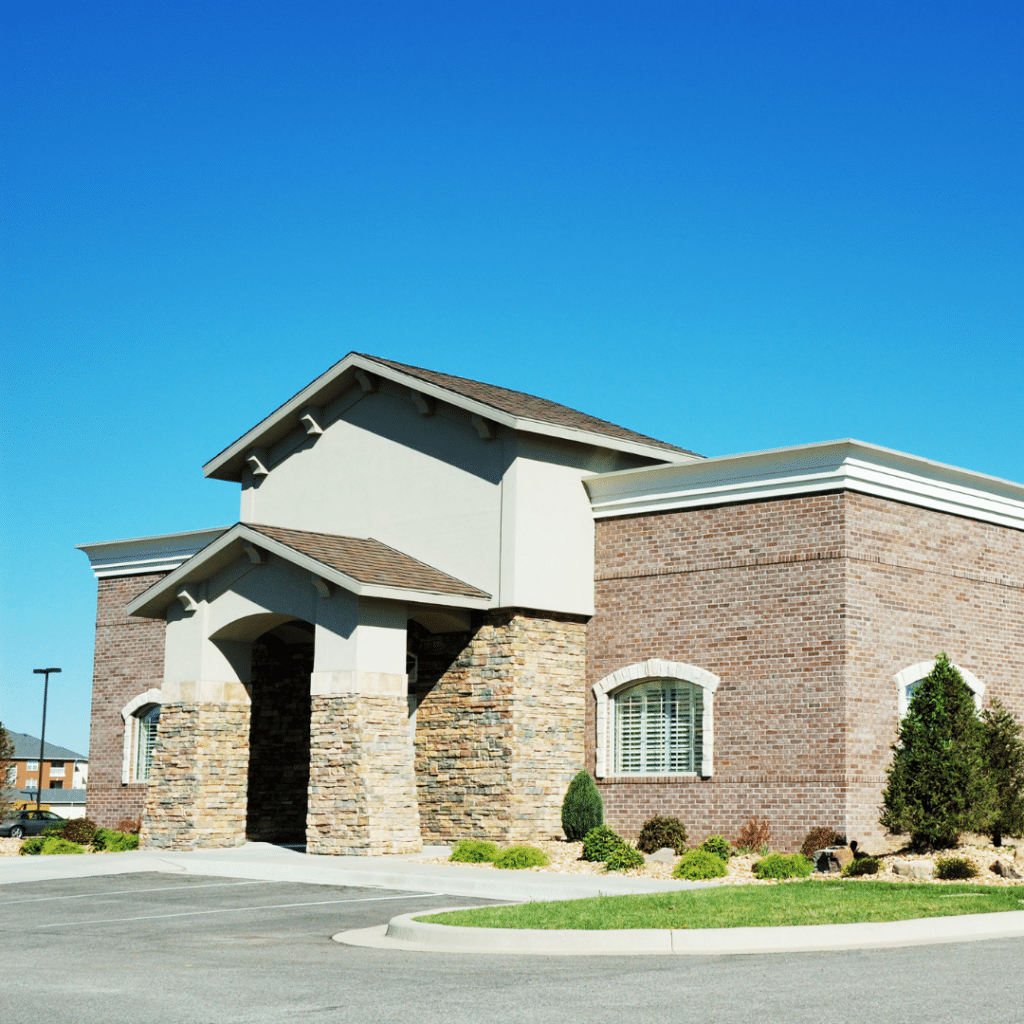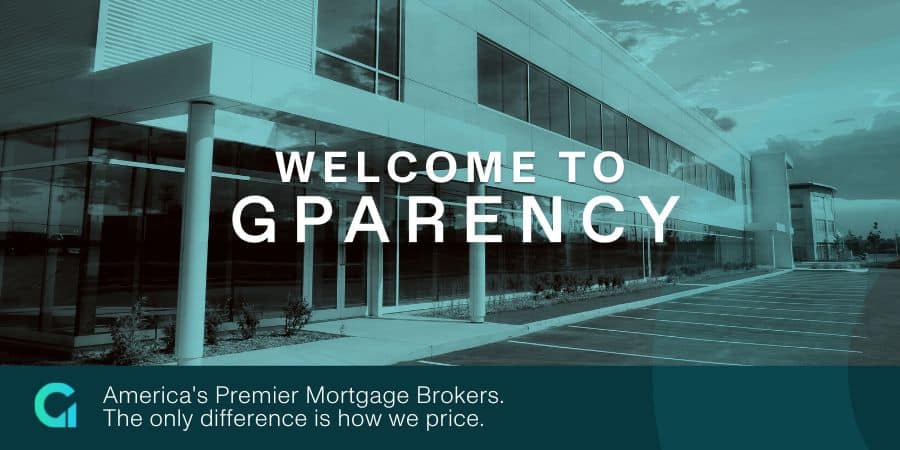In This Article
- Types of Properties
- Security versus Profits
- Appreciating Concepts: Primary Residence
- Size of Properties
- Find the Perfect Listing with GPARENCY
- FAQs
As an investor, the options on a property market can be overwhelming. This blog helps break down the types of properties available and their respective rewards or drawbacks to help brokers make informed decisions when deciding between different investments. Take note—each type has its own unique features that may prove beneficial or pose risks for your portfolio!
Types of Properties
There are three basic property types dealt with in real estate transactions:
Residential Properties
In the real estate industry, the term “residential properties” refers to properties used primarily as places of dwelling. Residential properties can be tenant-occupied, owner-occupied, or mixed. In certain contexts, the term ‘residential properties’ refers only to owner-occupied housing.

Here are the different types of residential properties.
- Single-family (one-family home)
- Multifamily (Separate units within one building structure.)
- Duplex (2 units)
- Triplex (3 units)
- Quadruplex (4 units)
- Apartment buildings (a property with 5 or more units)
Commercial Properties
A commercial property is designed for use by a retail or wholesale establishment, office, hotel, or industry.

The term “commercial property” refers to all non-residential properties. This is the most common reference in the real estate industry at large. However, in the technical language of financing, multifamily buildings that contain more than four family units are also regarded as commercial properties. Thus, loans for residential units of more than four family units will require a commercial loan.
Mixed-Use Property
A mixed-use property contains more than one of the above property types, in other words, a property that has stores on the ground level and apartments above it.
Security versus Profits
The question of investing into, or lending on, residential properties vs. commercial properties is often one of more security vs. greater profits, with the residential properties representing the greater security. This is due to the different attitudes that commercial renters and residential renters have toward mortgage payments.
A business owner going through a bad period may decide that the rent on one of his offices can wait in favor of another, more pressing, expense. Or, in more severe situations, he may give up on a particular factory or business that is not covering its costs and let it go into foreclosure (repossession of a property by the lender).
On the other hand, a tenant whose primary dwelling is in a rented property or a homeowner responsible for a monthly mortgage payment will always give the monthly rent or mortgage payment his absolute highest priority.
Shelter, food, and clothing are the most basic of human needs. Even when times are hard and other bills may be pushed off, the tenant or homeowner will make sure first to pay his monthly rent or mortgage. Payment on a residential property is income that a landlord or lender can rely on. Thus, although generally, the potential profit from residential properties is less than from commercial properties, residential properties are considered safer among the two investment choices.
Appreciating concepts: Primary Residence
Two people apply to a bank for a mortgage. One is a first-time home buyer, and the other is applying for a second or third home. Who receives better terms for the loan? You may suppose that the one applying for a mortgage for the second time is in a better position. After all, he has already proven himself to be a person with the means to buy a home or pay back the mortgage on one, while the first-time home-buyer is a financial unknown. Believe it or not, banks are more willing to lend to a first-time home buyer than one who already has a home.
The principle behind this is the same as that discussed above regarding the security of residential properties. For the first-time home buyer, this home will become his primary residence; he has no other place to go to get out of the rain. Even in a crunch, his monthly mortgage payments are his first priority. To the bank, this represents a high level of security that they will, in fact, receive their payments in a timely fashion.
On the other hand, should someone who owns multiple homes fall upon difficult times and can no longer pay for all of his houses, he may decide to stop paying the mortgage on one of his houses and risk foreclosure while he stays dry in one of his other homes.
Size of Properties
Another factor that investors need to take into account when deciding on a property is size. Obviously, the larger the property and the more tenants, the more profit the property can produce. Large properties are also usually a safer investment. For example, in a property with a lot of tenants, each individual expense is a smaller percentage of the overall profits. If a costly repair becomes necessary, or one of the tenants defaults on payment, that expense is offset by the large number of rents that can still be expected monthly.
Paying for utilities is also more economical in larger properties since the same infrastructure can service many tenants. For example, if one owns an apartment building, one would only have to pay for and maintain one boiler for sixteen apartments. In contrast, if the same tenants were spread out over four smaller properties, four separate boilers would have to be bought and maintained.
Find the Perfect Listing with GPARENCY
Today, I am redefining the status quo at GPARENCY.GPARENCY is a commercial real estate company and provider of technology solutions designed to empower commercial property owners and reduce their reliance on certain high-cost service providers.

A GPARENCY membership equips you with the most competitive tools to find and finance your next deal, including access to updated commercial real estate listings, data, relationships, debt, and equity. Members can browse thousands of groundsourced investment opportunities around the nation using an interactive digital map with street view displays, plus get alerted when a property changes pricing or is listed in their vicinity.
FAQs:
- Why are commercial properties a good investment?
- Steady income stream: Commercial properties can provide a steady income stream through rent payments from tenants. Unlike residential properties where tenants may move out frequently, commercial tenants often sign longer leases, providing a more reliable source of income.
- Higher rental yields: Commercial properties often have higher rental yields than residential properties. This means that the rental income generated as a percentage of the property’s value is typically higher for commercial properties.
- Potential for capital appreciation: Commercial properties also have the potential for capital appreciation, which is the increase in the property’s value over time. If you buy a commercial property in a desirable location, its value may increase due to factors such as economic growth, development in the area, or changes in zoning laws.
- Tax benefits: Commercial property owners can also benefit from tax deductions for expenses such as mortgage interest, property taxes, and depreciation. These deductions can help to reduce the overall tax liability associated with owning commercial property.
- Diversification: Investing in commercial properties can also help to diversify your investment portfolio, reducing your exposure to risk. Commercial properties are typically less volatile than other types of investments such as stocks, making them a more stable investment option.
Overall, commercial properties can be a good investment if you are willing to do your research and due diligence to find the right property in the right location.
- What is the length of a typical commercial loan?
- The length of commercial loans can vary depending on the lender and the specific loan terms. However, commercial loans are typically structured with a term length ranging from five to 20 years, with some lenders offering terms up to 25 or 30 years.
- What is foreclosure?
- Foreclosure is a legal process in which a lender takes possession of a property that was used as collateral for a loan, typically a mortgage, because the borrower has failed to make the required payments on the loan. The foreclosure process begins when the borrower defaults on the loan, usually by missing several payments. The lender will then file a foreclosure action in court, which initiates a legal proceeding to seize and sell the property in order to recoup the outstanding debt.
During the foreclosure process, the property will be sold at a public auction to the highest bidder, with the proceeds used to pay off the outstanding mortgage balance and any associated fees and costs. If the property is sold for less than the outstanding debt, the borrower may still be responsible for paying the difference, known as a deficiency judgment.
Foreclosure can have serious consequences for the borrower, including damage to their credit score and the loss of their home or other property. It is important for borrowers to understand their options and seek assistance if they are facing foreclosure or are struggling to make mortgage payments.
- Foreclosure is a legal process in which a lender takes possession of a property that was used as collateral for a loan, typically a mortgage, because the borrower has failed to make the required payments on the loan. The foreclosure process begins when the borrower defaults on the loan, usually by missing several payments. The lender will then file a foreclosure action in court, which initiates a legal proceeding to seize and sell the property in order to recoup the outstanding debt.




